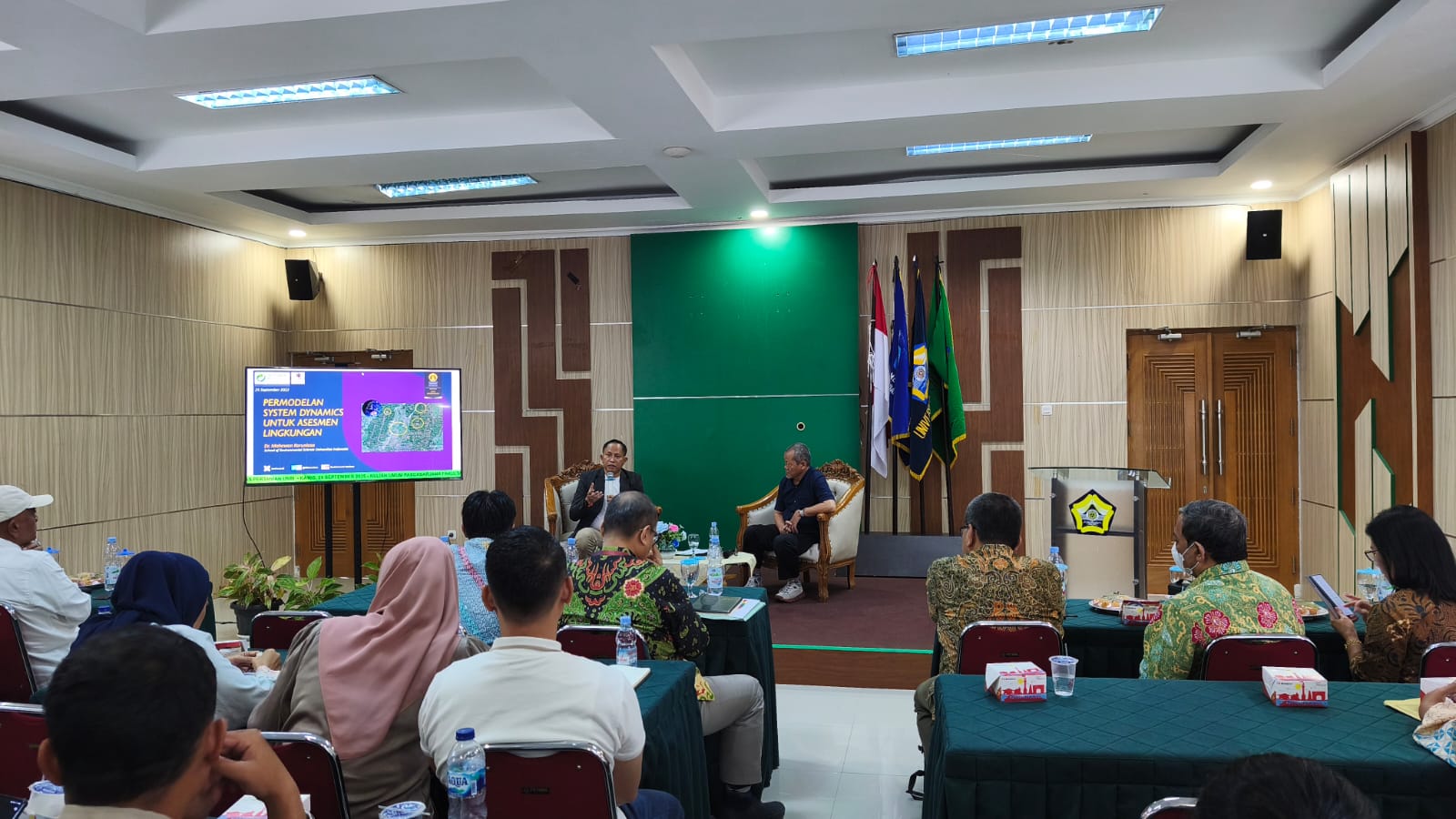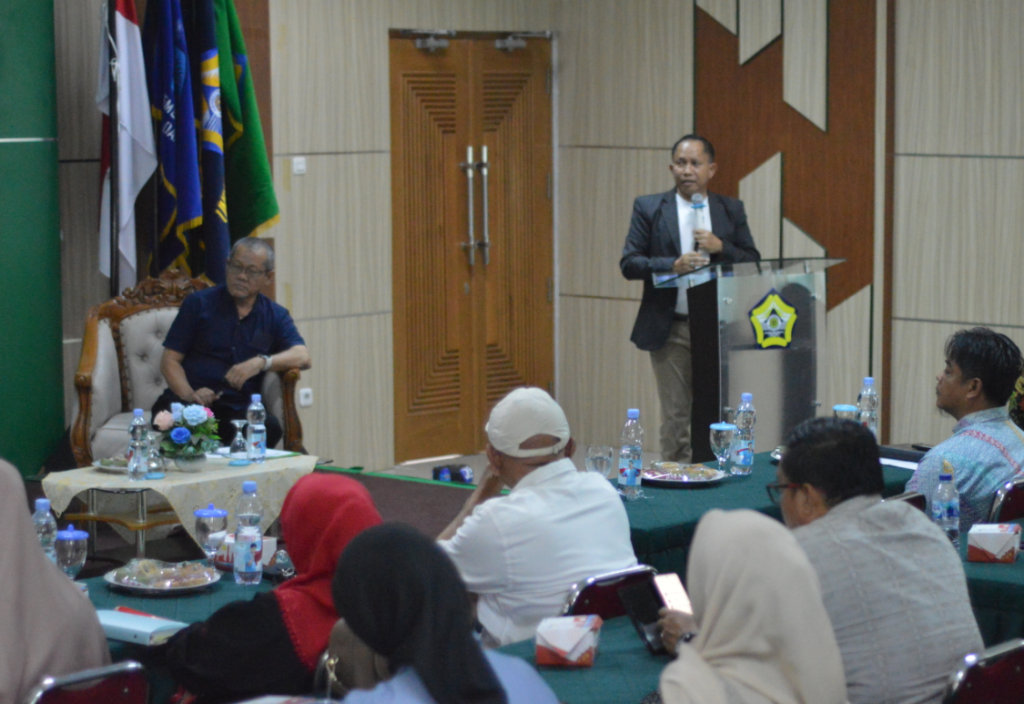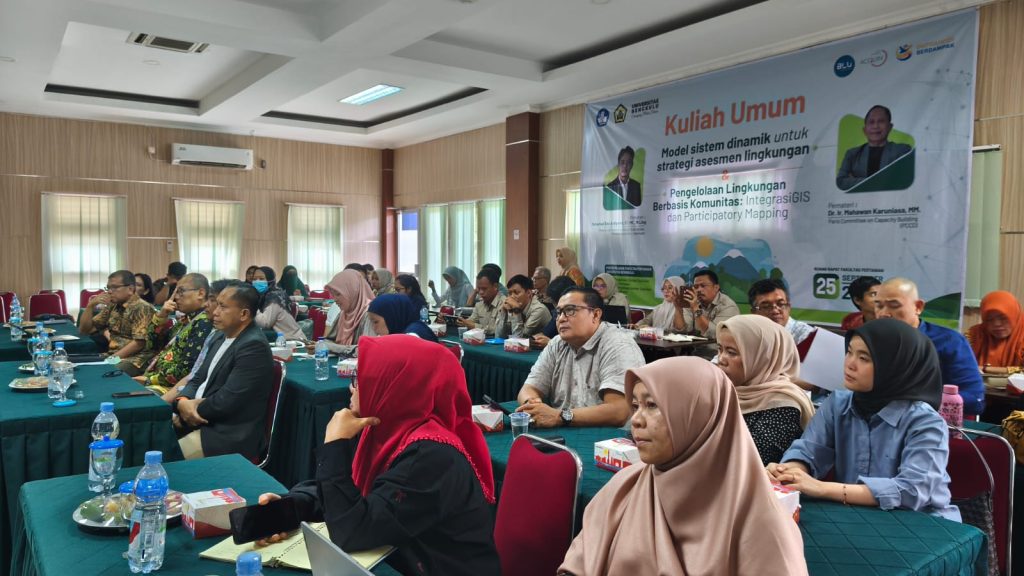
Public Lecture: Dynamic System Model for Environmental Assessment Strategies
Strengthening systems thinking for sustainable environmental management
The Master’s Program in Natural Resource Management (PSDA), in collaboration with other graduate programs within the Faculty of Agriculture, University of Bengkulu, successfully held a public lecture titled “Dynamic System Model for Environmental Assessment Strategies.” The event aimed to enhance students’ and researchers’ understanding of system-based approaches in environmental analysis and policy development.
“Understanding the environment as an interconnected system allows us to design smarter, evidence-based interventions,” said Dr. Mahawan Karuniasa during his presentation.
The lecture featured Dr. Ir. Mahawan Karuniasa, MM, an environmental scientist from the School of Environmental Science, Universitas Indonesia, and a member of the Paris Committee on Capacity Building (PCCB) under the UNFCCC. With decades of experience in sustainability science, Dr. Mahawan guided participants through the principles of Systems Thinking and System Dynamics, emphasizing their role in developing holistic and adaptive strategies for environmental assessment.

He explained that a system is composed of interrelated components that function together as part of a larger whole. In environmental contexts, these systems encompass ecological, social, and economic dimensions that interact through feedback mechanisms. Using the System Dynamics Modeling approach, these relationships can be visualized and simulated to identify leverage points — variables where small changes produce significant impacts on system performance.
Dr. Mahawan also introduced participants to the stages of model development, including observation, conceptualization through Causal Loop Diagrams (CLD) and Stock and Flow Diagrams (SFD), data validation, and simulation testing. This method enables policymakers to predict future environmental behaviors and evaluate the effectiveness of potential interventions before implementation.
Throughout the session, participants engaged in interactive discussions on how modeling techniques could be applied to assess ecosystem dynamics, manage water resources, and support sustainable land-use planning. The lecture underscored that integrating system dynamics into environmental assessment is not only a scientific method but also a strategic tool for achieving long-term sustainability goals.
Commitment to Sustainability Education
This public lecture reflects the strong commitment of the Master’s Program in Natural Resource Management, University of Bengkulu, to promote transdisciplinary learning and evidence-based environmental governance. By applying systems thinking, the program aspires to cultivate future leaders, researchers, and practitioners who can design innovative, inclusive, and sustainable solutions to environmental challenges at local, national, and global levels.













